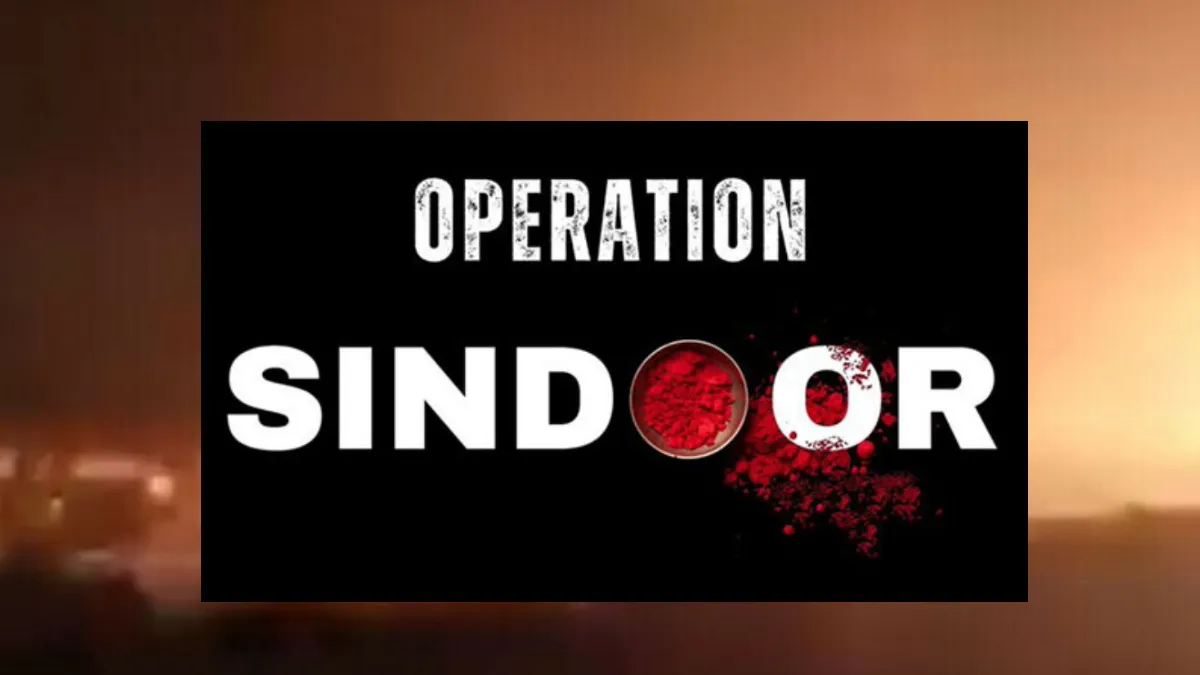India’s Operation Sindoor, a targeted military action against alleged terrorist infrastructure within Pakistan and Pakistan-administered Kashmir (PoJK) in response to the deadly Pahalgam terror attack, has triggered a spectrum of reactions from the international community. These responses reflect the complex geopolitical landscape, the varying relationships nations share with India and Pakistan, and the overarching global concern for maintaining peace and stability in the South Asian region.
Table of Contents
ToggleKey Players and Their Stances:
Several prominent nations and international organizations have issued statements or taken actions in the wake of Operation Sindoor:
United States:
The United States, a key strategic partner of India and a nation deeply invested in counter-terrorism efforts, adopted a nuanced approach. President Donald Trump, in his initial remarks, acknowledged the history of conflict between India and Pakistan and expressed hope for a swift de-escalation. He stated that the US was closely monitoring the situation. Secretary of State Marco Rubio echoed this sentiment, emphasizing the need for a peaceful resolution and indicating ongoing engagement with both Indian and Pakistani leadership. The US stance appeared to balance understanding India’s security concerns with a desire to prevent further military escalation.
United Nations:
The United Nations, through Secretary-General António Guterres, voiced significant concern over the Indian military operations across the Line of Control (LoC) and the international border. He urgently called for “maximum military restraint” from both India and Pakistan, emphasizing that “the world cannot afford a military confrontation” between the two nuclear-armed neighbors. The UN’s primary focus was on de-escalation and the prevention of a wider conflict.
China:
As a close ally of Pakistan and a major regional power with its own complex relationship with India, China expressed “regret” over India’s military actions. Beijing urged both India and Pakistan to prioritize peace and stability, remain calm, exercise restraint, and avoid any actions that could further complicate the already tense situation. China’s response underscored its concern for regional stability and its long-standing diplomatic ties with Pakistan.
Israel:
In a strong show of solidarity with India, Israel’s Ambassador to India, Reuven Azar, unequivocally supported India’s right to self-defense. He asserted that “terrorists should know there’s no place to hide from their heinous crimes against the innocent,” effectively endorsing India’s counter-terrorism operation. This stance reflects the growing strategic partnership between India and Israel, particularly in the realm of security and counter-terrorism.
United Arab Emirates (UAE):
The UAE, a significant partner for both India and Pakistan in the Gulf region, called for restraint and de-escalation of tensions. Deputy Prime Minister and Foreign Minister Sheikh Abdullah bin Zayed Al Nahyan urged both nations to avoid further escalation that could threaten regional and international peace. He emphasized that diplomacy and dialogue remain the most effective means of peacefully resolving crises and strengthening stability in South Asia.
Other Nations:
Several other countries issued statements, predominantly calling for restraint, dialogue, and the avoidance of further escalation. Many echoed the concerns raised by the UN regarding regional peace and stability. Some nations with strong counter-terrorism agendas expressed understanding for India’s need to address the threat of cross-border terrorism, while still urging caution.
Key Themes in International Reactions:
Several recurring themes emerged from the international responses to Operation Sindoor:
Call for Restraint and De-escalation: The most prevalent theme was an urgent appeal to both India and Pakistan to exercise maximum restraint and take immediate steps to de-escalate the heightened tensions. The international community is acutely aware of the potential for a dangerous escalation between two nuclear-armed states.
Emphasis on Dialogue and Peaceful Resolution: Many nations and organizations stressed the importance of dialogue and diplomatic channels as the only viable path towards a long-term resolution of the underlying issues between India and Pakistan. Military action was largely viewed as a risky and potentially counterproductive approach.
Recognition of India’s Right to Self-Defense (with caveats): While there was a general understanding of India’s right to protect itself from cross-border terrorism, this was often coupled with calls for proportionality and adherence to international norms to avoid further inflaming the situation.
Concern for Regional Stability: The potential for Operation Sindoor to destabilize the South Asian region was a significant concern for many international actors. The interconnectedness of the region and the potential for wider conflict prompted calls for responsible behavior from both sides.
Focus on Counter-Terrorism: Several nations reiterated the global imperative to combat terrorism in all its forms. India’s justification for the operation as a counter-terrorism measure resonated with countries that have themselves been victims of terrorism.
The Role of International Media:
International media coverage of Operation Sindoor was diverse, with some outlets echoing India’s stance that it was a calibrated counter-terrorism strike, while others emphasized the potential for escalation and highlighted Pakistan’s claims of civilian casualties. The framing of the narrative in international media plays a crucial role in shaping global public opinion and influencing diplomatic responses.
Implications for the Future:
The international reaction to Operation Sindoor will likely play a significant role in shaping the future trajectory of India-Pakistan relations. Strong and unified calls for de-escalation from major global powers could exert pressure on both sides to avoid further military action. Conversely, divergent responses or a perceived lack of international condemnation could embolden either side to adopt a more assertive stance.
Conclusion: A World Watching With Concern
The international community’s response to Operation Sindoor has been a mix of concern, cautious understanding, and direct support. The overwhelming sentiment is a desire to prevent further escalation and to encourage dialogue between India and Pakistan.
While some nations have acknowledged India’s right to self-defense against terrorism, the overarching message has been one of restraint and the urgent need to preserve regional peace and stability.
The world watches closely as the situation unfolds, hoping for a swift de-escalation and a return to diplomatic engagement between these two important South Asian nations.

